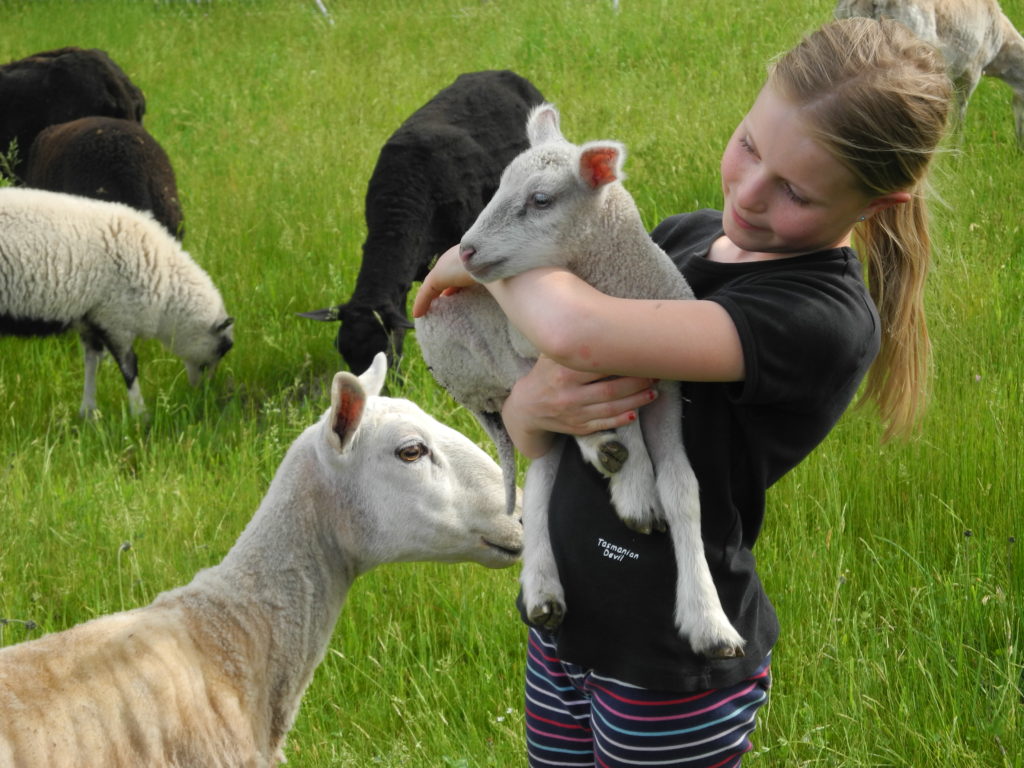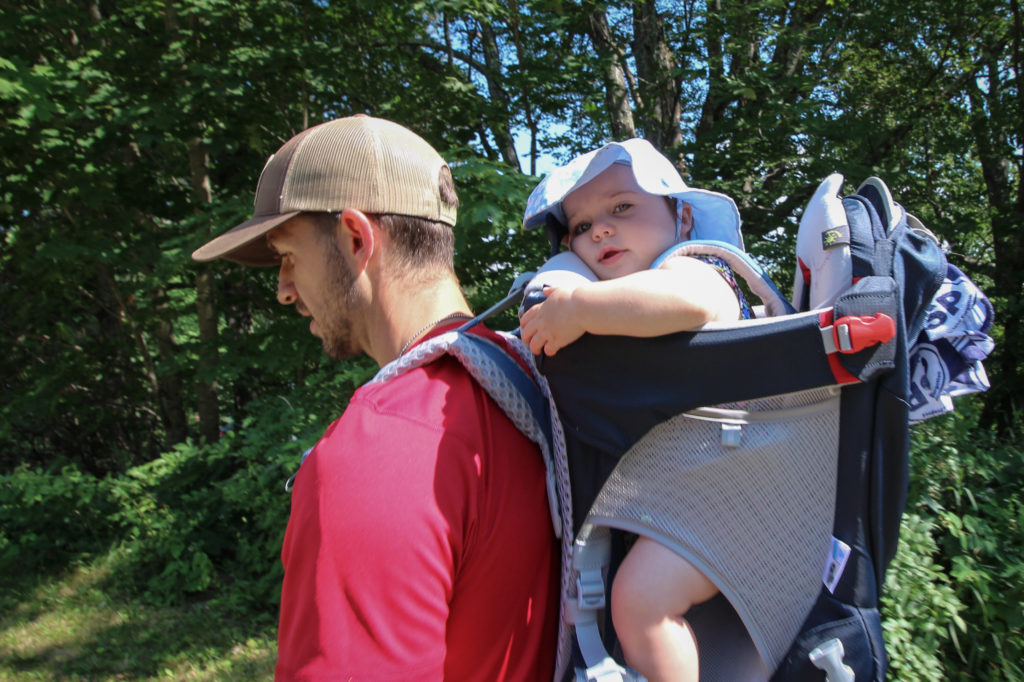Science says babies exposed to livestock develop healthier immune systems

Could playing with livestock improve your baby’s health? New research suggests it might.
In a study from The Ohio State University recently published in Frontiers in Immunology, researchers found that the microbes found in fecal samples of rural Amish babies who were regularly exposed to livestock were more diverse than urban babies who were not.
The scoop: the poop showed that babies regularly exposed to livestock have stronger, healthier guts.
“More gut microbiome diversity is good for us,” said Renukaradhya Gourapura, a professor in the Food Animal Health Research Program at The Ohio State University and co-leader of the study. “Early microbiome colonization plays an important role in the maturation of the immune system in the body. When [microbes] get into the system, they induce maturation and regulation of the function of specific kinds of immune cell populations that become tolerogenic [develop an immune tolerance] to many allergens.”
This finding squares with past research on the gut microbes of rural infants throughout the world. Past studies have also shown a connection between rural life and a decrease in allergies and asthma in the United States and beyond. It also builds on the popular “hygiene hypothesis,” which asserts that early exposure to germs helps children’s immune systems develop as they age.
“Keeping things sterile is not good, especially for the growing immune system of infants and children,” Gourapura said. “The immune system needs to see diverse environmental microbes from early in life that way the body is educated properly. There is a clearly documented, significantly higher number of allergens and diseases going on in urban children, but not in rural raised children.”
While such survey studies are helpful, the researchers at The Ohio State University wanted to take it to the next level by observing how diverse gut bacteria spurs a healthy immune system. Lab rat immune systems and gut were not close enough to humans’ to be a good model.
Their groundbreaking solution: piglets.
Gourapura explained that pigs are more anatomically and genetically similar to humans than rodents. The layout of the pigs’ gastrointestinal system follows a similar pattern to humans’. Previous studies showed that pigs were an excellent proxy for humans when studying infectious disease.
The researchers inserted the microbes into hundreds of newborn pigs kept in a germ-free lab at The Ohio State University. The researchers saw a connection between the diverse Amish gut microbes and a more-robust development of lymphoid and myeloid immune cells.
The wealth of data from the research not only opens the door to further studies about building immunity in children, but also how pigs can be used as a model for such studies in the future.
“There are a lot of variations [that can impact the immune system]: diet plays a role, age plays a role, health plays a role,” Gourapura said. “Now, we have a suitable animal model we can use efficiently.”
In the meantime, what’s a city-dwelling parent to do?
“Many parents are very keen to know if you can start doing something good from an early age,” Gourapura laughed. “They should start exposing the children to the natural environment and animals more and more from very early in life.”

Gourapura recognized that not everybody can live like the Amish, but he suggested regularly bringing infants out on hikes or to visit farms when time permits. Further research could also lead to the development of probiotics that would help develop the missing microbes.
“Can we identify those groups of beneficial microbes and support them colonization in children?” Gourapura said. “If you cannot get exposed naturally to those microbes, maybe we can come up with a group of probiotics that could help with immune system development.”
